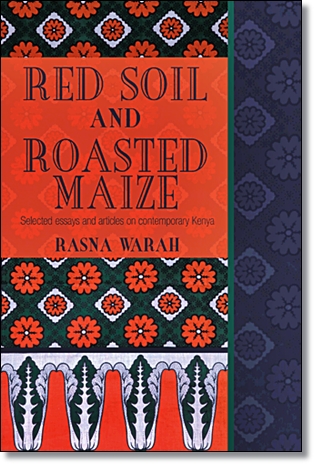Red Soil and Roasted Maize - A Book Review

 |
As a start, Warah presents reflections on the lives of writers and women and their position in society, but also, for instance, on maturing through the experience of death. She gives a hint from which position she is writing and by which passion she is driven as an author: “to lay bare the horrible, glorious, twisted, beautiful and complex world we live in so that others may see themselves more clearly”. This statement provides the key to the various topics she is touching on.
This may be quite important for the chapter on “the Kenyan condition” where Warah confronts us with truths related to what it means to be “Kenyan at home and abroad”, to the questions of “identity and ethnicity”, and above all, to the challenges of “the 2007/8 post-election violence”.
Finally, Warah takes up a topic that has obviously been worrying and even annoying her for a long time: namely the “myth” of development aid. In her previous publication “Missionaries, Mercenaries and Misfits” (2008), she had collected views on the doubta-ble purpose and success of aid. Here, she reprints her introduction to that earlier book, an analysis that expresses her serious concerns about the meaning of aid. Finally, she looks beyond Nairobi and Kenya by sketching Mumbai, Beijing and Kabul as cities in other upcoming and troubled countries.
What is the motif behind the discussion of quite different topics, behind the wide spec-trum from personal experiences as a writer, woman and whistle-blower to the post-election clashes in Kenya? Why this strong criticism of Kenyan politicians, of the dev-astating effect of corruption or the aid industry, the “slum tourism” and Kenya’s “moral bankruptcy”? What makes her challenge the “lords of impunity” in UN, the organization she has been working for? From where stems this concern for identity – her own, the Kenyan, the Asian?
It is the care for humanity and the urge for a dignified life for everyone, the outcry against injustice, extreme inequality and poverty. The reader who can appreciate this underlying focus that combines Warah’s short essays will gain a lot.
By Helmut Danner.
Nairobi, January 2012
_____________________________________________________
1Rasna Warah: Red Soil and Roasted Maize. Selected essays and articles on contemporary Kenya. Bloomington (AuthorHouse) 2011, 188 pp.
